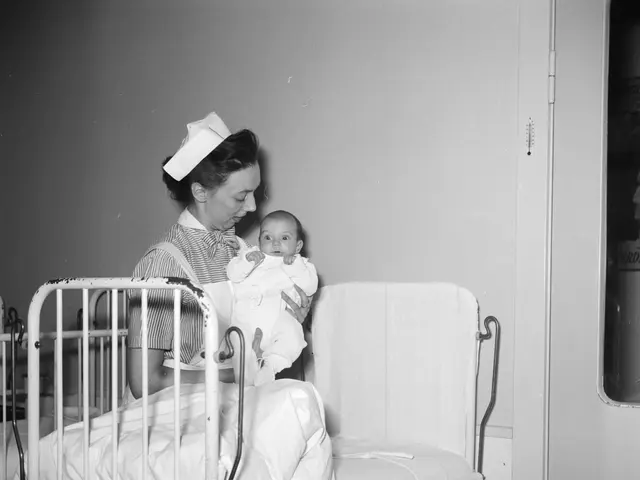Military service leaves Merz with fond recollections.
Spotlight on Federal Chancellor Friedrich Merz's Military Past and Future Discussions on Conscription
In a candid chat with "Bild am Sonntag", Federal Chancellor Friedrich Merz fondly reminisced about his terms in the Bundeswehr during the '70s. Reflecting on his service, he noted, "Mateship was strong, and a sense of unity bound us together. We felt like we were contributing to something grander, which gave us a sense of safety."
A government representative revealed that Merz's military career spanned from July 1, 1975, to September 30, 1976. At various Bundeswehr stations, including Clausthal-Zellerfeld (Lower Saxony), Warendorf (NRW), Kusel (Rhineland-Palatinate), and Dülmen (NRW), he honed his skills as a tank artillery specialist. His arsenal included the 155mm FH 190 field howitzer and the M109 howitzer. Eventually, he advanced to the rank of Fahnenjunker.
Conscription in the military took a halt in 2011, doing away with both military and civilian service. Presently, both the Union and SPD aim to establish a new, voluntary military service model as a compromise – the Union seeking to revert conscription, while the SPD is content with the voluntary model. However, discussions about reinstating conscription are still a hot topic in politics.
Shedding Light on Current Debates on Conscription
There's an ongoing debate concerning potential military conscription reinstatement in Germany, involving the Federal Chancellor Friedrich Merz and the Union (CDU/CSU) and the Social Democratic Party (SPD). The discourse revolves around strengthening the Bundeswehr to meet NATO standards and combating the current soldier deficit.
Chancellor Friedrich Merz hints at possible reconsideration of conscription if voluntary service falls short of the military's recruitment goals. His stance echoes the significant soldier shortage in the Bundeswehr, which currently faces a hefty, five-digit soldier deficit[1][2].
Defence Minister Boris Pistorius, an SPD member, has also shown openness to reintroducing conscription if insufficient volunteers enlist[3][4]. The SPD's stance aligns with the possibility of revisiting conscription based on recruitment needs.
The Union parties, where Merz belongs, initially intended to preserve voluntary service. However, recent discussions suggest flexibility if recruitment numbers fail to reach desired levels[3][4].
In conclusion, there's a tentative openness in reintroducing conscription in Germany. Both Chancellor Merz and Defence Minister Pistorius have hinted at the possibility of reinstating conscription based on recruitment outcomes, marking a shift from the initial agreement to maintain voluntary service.
The ongoing debate in policy-and-legislation circles regarding potential conscription reinstatement in Germany involves the Federal Chancellor Friedrich Merz and the Union (CDU/CSU) and the Social Democratic Party (SPD), as they discuss ways to strengthen the Bundeswehr and combat soldier deficits. Other political parties are also considering the reintroduction of conscription as a means to meet NATO standards and raise recruitment numbers.







